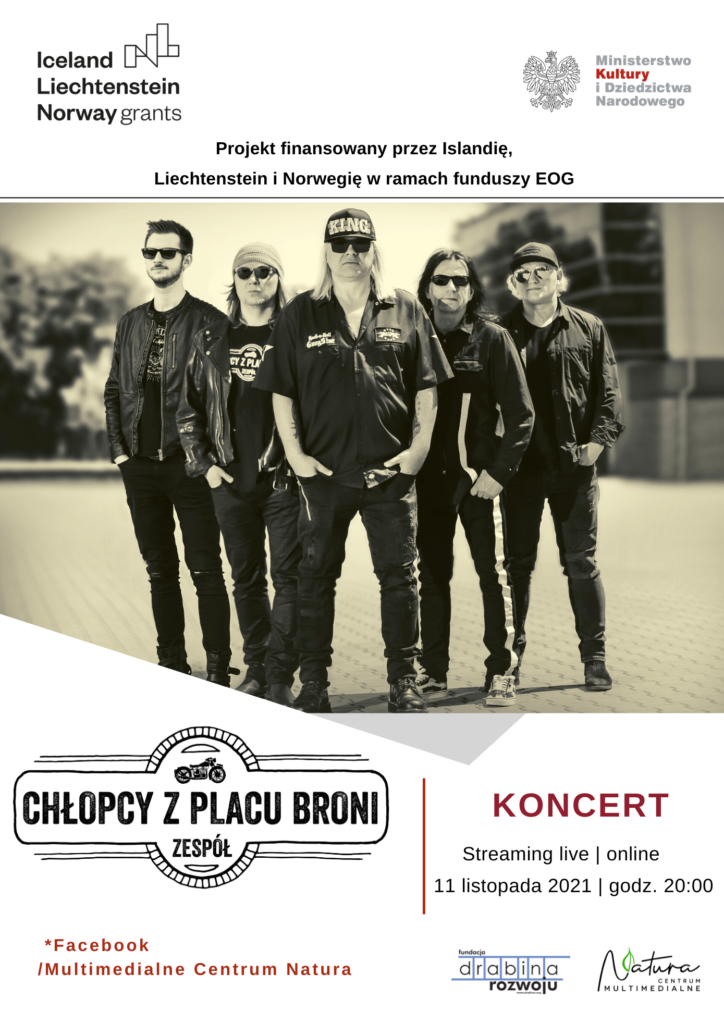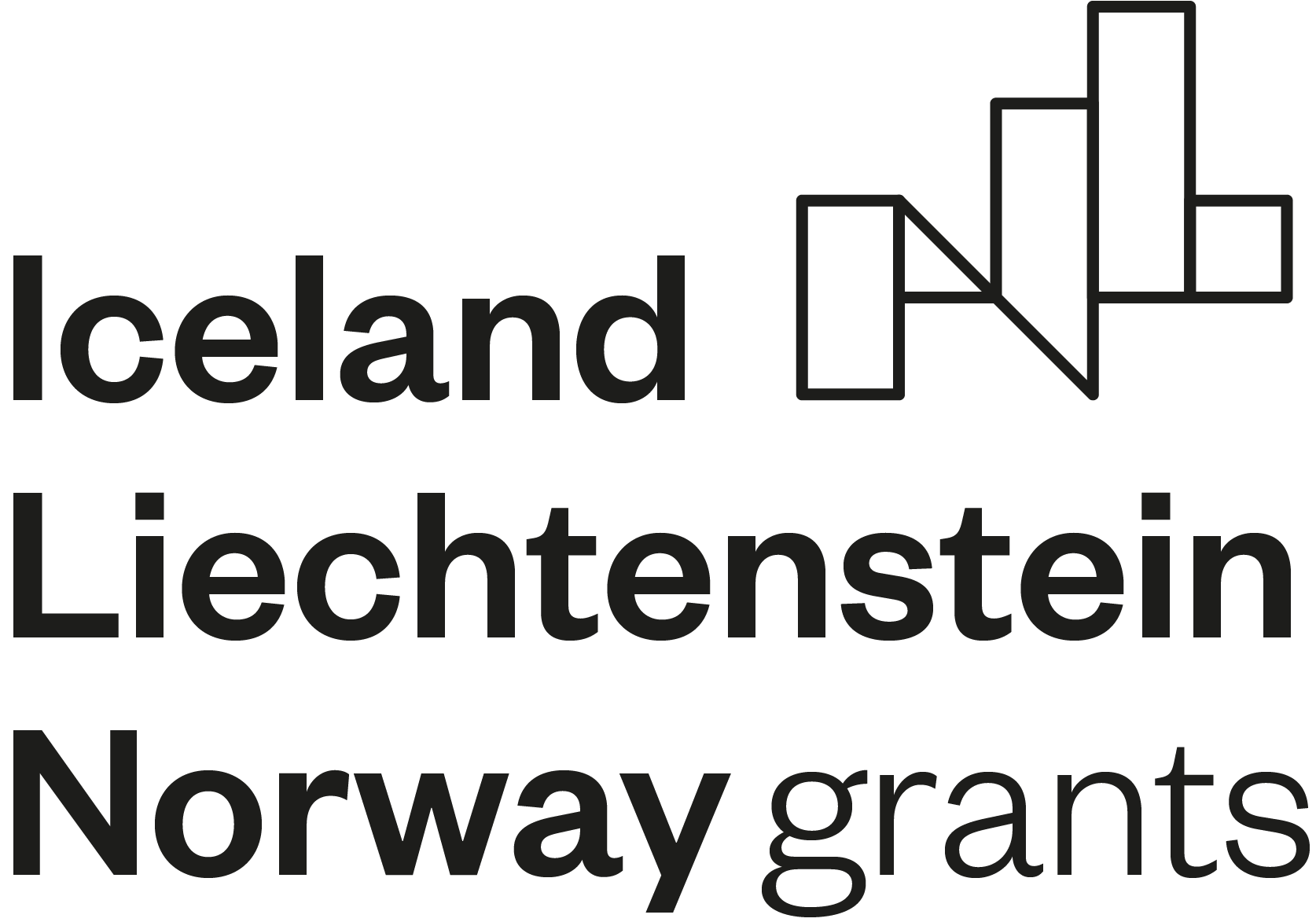English version
From the beginning of the group’s existence, its leader was the vocalist, guitarist and creator of the group’s repertoire, Bogdan Łyszkiewicz. The first line-up also included guitarist Jacek Królik, bassist Waldemar Raźny and drummer Wojciech Namaczyński. Jarosław Sokół performed the duties of the manager. The group started its activity under the patronage of the Nowa Huta Cultural Center.
In April 1987, in the Jesuit Fathers studio in Krakow, the band recorded a demo cassette, on the basis of which Kora (Maanam) recommended the band to the Jarocin Festival competition (it was the only year in the history of this event in which the performer could take part in the competition under the guarantee of a well-known musician ). In Jarocin, in the „Golden Ten” there were Chłopcy z Placu Broni, Jarosław Kisiński (and at the same time Sztywny Pal Azji), winning the recognition of the audience (contrary to the unfair opinions of critics) with simple, unpretentious, rock and roll music with a „positive message”. After returning from the festival, the musicians recorded a song for Rozgłośnia Harcerska entitled Aeroplan, which became their first national hit. The second and greatest hit in the history of the group was the ironic song ABOUT! Ela, who for several weeks occupied the first place on the charts of the third program. For the next two years, the Chłopcy z Placu Broni triumphs by performing in Jarocin (1988-91), in Rock Opole as part of the KFPP in Opole (1988-91), at the Musical Camp in Brodnica (1988) and by taking part in the tours of the National Youth Stage. They aroused particular enthusiasm in 1988 in Jarocin and Brodnica. During this period, Jacek Dyląg played the guitar (he performed, among others, at the festival in Opole in 1989). Chłopcy z Placu Broni made their debut on the music market in 1990 with a studio album entitled ABOUT! Ela. Apart from Łyszkiewicz and Namaczyński, the recording session was attended by: guitarist Krzysztof Zawadka (ex-Oddział Zamknięty and Daab), bassist Paweł Nazimek (Sztywny Pal Azji; later T. Love) and second guitarist Marek Siegmunt. The title track was not included on the album, but for two years new songs appeared on the charts – This is the end, When I’ll be a good man, Chory country (inspired by the music of Iggy Pop), Our new anthem and I love freedom. The album O! Ela was very popular, in contrast to the next album A cross from 1991, which after Zawadka’s departure was played by Piotr Kruk, and after the departure of Nazimek, Franz Dreadhunter (ex-Tilt and Bajm) with a guest participation of the guitarist Dżem Jerzy Styczyński and the keyboardist Janusz Grzywacz . The moderate success of the second album was due to the low promotional power of Reynoll Music, which was formed with the sole intention of releasing this album. The strengths of the Cross are: equally successful compositions, greater maturity and a more diverse repertoire (the second edition of the album from 1994, enriched with three bonuses – the publisher was Bogdan Studio, was more popular). In 1993, the band’s discography was enriched with the most popular collection by Chłopcy z Placu Broni, I love you, which sold over 100,000 copies. The popularity of the album was determined by the presence of the early hits of O! Ela and Aeroplan and a new hit, the title track in a different form, already known from Krzyż and the cover of „Jezioro Szczęścia” by Bajm. The recording was attended by Jacek Królik and Artur Malik and guests: Jan Borysewicz (guitar), John Porter (acoustic guitar) and Wojciech Morawski (drums), as well as Łyszkiewicz and Dreadhunter. In 1993, Chłopcy z Placu Broni performed at the Rock FAMA event in Świnoujście – a fragment of the performance was released on the Rock FAMA ’93 cassette. In the fall, they gave an acoustic concert in the studio of Radio Łódź, filmed for the needs of TVP, and in 1994 the album Songs for Children from 5 to 155 was released. In line with the „Current Bez” formula, the group changed the arrangement of the songs performed and enriched them with the sound of the piano and strings. At that time, the band’s concerts had two faces – either Łyszkiewicz himself gave recitals with an acoustic guitar, or the entire band in the electric formula. On the Women’s Day in 1996, the group released their next album, entitled Smile! recorded with guitarist Sergey Pieriekriestov and drummer Grzegorz Schneider (ex-Homo Twist). The sound engineer Rafał Paczkowski and a string orchestra made guest appearances on keyboards. In the mid-1990s, he performed several times in Polish clubs in the United States. In 1998, the concert album Chłopcy Z Placu Broni Gold was released. Another album entitled Poland was released in 2000. The song Fri The football song became the anthem of the Polish national team during the qualification for the 2000 European Championship.

Od początku istnienia grupy jej liderem był wokalista, gitarzysta i twórca repertuaru grupy Bogdan Łyszkiewicz. W pierwszym składzie znaleźli się także gitarzysta Jacek Królik, basista Waldemar Raźny i perkusista Wojciech Namaczyński. Jarosław Sokół pełnił obowiązki kierownika. Zespół rozpoczął działalność pod patronatem Nowohuckiego Centrum Kultury.
W kwietniu 1987 roku w studiu Ojców Jezuitów w Krakowie zespół nagrał kasetę demo, na podstawie której Kora (Maanam) zarekomendowała zespół do konkursu Festiwalu Jarocin (był to jedyny rok w historii tego wydarzenie, w którym wykonawca mógł wziąć udział w konkursie pod gwarantem znanego muzyka). W Jarocinie w „Złotej Dziesiątce” znaleźli się Chłopcy z Placu Broni w składzie Jarosław Kisiński (a zarazem Sztywny Pal Azji), zdobywając uznanie publiczności (wbrew niesłusznym opiniom krytyków) prostymi, bezpretensjonalna, rock and rollowa muzyka z „pozytywnym przesłaniem”.
Po powrocie z festiwalu muzycy nagrali piosenkę na Rozgłośnię Harcerską pt. Aeroplan, która stała się ich pierwszym ogólnopolskim przebojem. Drugim i największym hitem w historii grupy była ironiczna piosenka pt. O! Ela, która przez kilka tygodni zajmowała pierwsze miejsce na listach przebojów programu trzeciego. Przez kolejne dwa lata Chłopcy z Placu Broni święcili triumfy występując w Jarocinie (1988-91), w Rock Opole w ramach KFPP w Opolu (1988-91), na Muzycznym Campingu w Brodnicy (1988) oraz biorąc udział w wycieczkach Krajowej Sceny Młodzieżowej. Szczególny entuzjazm wzbudzili w 1988 roku w Jarocinie i Brodnicy.
W tym okresie na gitarze grał Jacek Dyląg (wystąpił m.in. na festiwalu w Opolu w 1989). Chłopcy z Placu Broni zadebiutowali na rynku muzycznym w 1990 roku studyjnym albumem pt. O! Ela. Oprócz Łyszkiewicza i Namaczyńskiego w sesji nagraniowej wzięli udział: gitarzysta Krzysztof Zawadka (ex-Oddział Zamknięty i Daab), basista Paweł Nazimek (Sztywny Pal Azji; później T. Love) oraz drugi gitarzysta Marek Siegmunt. Utwór tytułowy nie znalazł się na płycie, ale przez dwa lata na listach przebojów pojawiały się kolejne utwory – To już koniec, Kiedy będę dobrym człowiekiem, Chory country (inspirowany muzyką Iggy’ego Popa), Nasz nowy hymn i kocham wolność .
Album O! Ela cieszyła się dużą popularnością, w przeciwieństwie do kolejnego albumu A cross z 1991 roku, na którym po odejściu Zawadki grał Piotr Kruk, a po odejściu Nazimka Franz Dreadhunter (ex-Tilt i Bajm) z gościnnym udziałem gitarzysty Dżemu Jerzego Styczyńskiego i klawiszowca Janusza Grzywacza. Umiarkowany sukces drugiego albumu był spowodowany niską siłą promocyjną Reynoll Music, która została założona z wyłącznym zamiarem wydania tego albumu. Mocne strony Krzyża to: równie udane kompozycje, większa dojrzałość i bardziej zróżnicowany repertuar (większą popularnością cieszyło się drugie wydanie albumu z 1994 roku, wzbogacone o trzy bonusy – wydawcą było Bogdan Studio).
W 1993 roku dyskografia zespołu została wzbogacona o najpopularniejszą w dorobku Chłopców z Placu Broni kolekcję I love you, która sprzedała się w ponad 100 000 egzemplarzy. O popularności albumu zadecydowała obecność wczesnych hitów O! Ela i Aeroplan oraz nowy hit, czyli tytułowy utwór w innej formie, znany już z Krzyża i coveru „Jezioro Szczęścia” zespołu Bajm. W jego nagraniu wzięli udział Jacek Królik i Artur Malik oraz goście: Jan Borysewicz (gitara), John Porter (gitara akustyczna) i Wojciech Morawski (perkusja), a także Łyszkiewicz i Dreadhunter.
W 1993 roku Chłopcy z Placu Broni wystąpili na imprezie Rock FAMA w Świnoujściu – fragment spektaklu ukazał się na kasecie Rock FAMA’93. Jesienią dali koncert akustyczny w studiu Radia Łódź, nakręcony na potrzeby TVP, a w 1994 roku ukazał się album Piosenki dla Dzieci od 5 do 155. Zgodnie z formułą „Prąd Bez” grupa zmieniła aranżację wykonywanych utworów i wzbogaciła je o brzmienie fortepianu i instrumentów smyczkowych. W tym czasie koncerty zespołu miały dwa oblicza – albo sam Łyszkiewicz dawał recitale z gitarą akustyczną, albo cały zespół w formule elektrycznej.
W Dzień Kobiet w 1996 roku ukazał się kolejny album grupy, zatytułowany Smile! nagrany z gitarzystą Sergeyem Pieriekriestovem i perkusistą Grzegorzem Schneiderem (ex-Homo Twist). Na instrumentach klawiszowych gościnnie wystąpił inżynier dźwięku Rafał Paczkowski i orkiestra smyczkowa.
W połowie lat 90. kilkakrotnie występował w polskich klubach w Stanach Zjednoczonych. W 1998 roku ukazała się koncertowa płyta Chłopcy Z Placu Broni Gold. Kolejna płyta zatytułowana Polska ukazała się w 2000 roku. Piosenka pt. Piosenka piłkarska stała się hymnem reprezentacji Polski podczas kwalifikacji do Mistrzostw Europy 2000.


